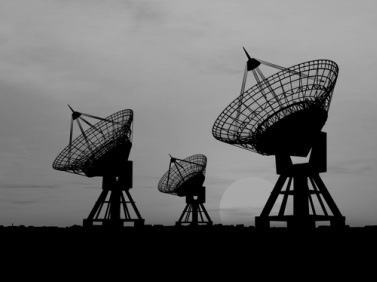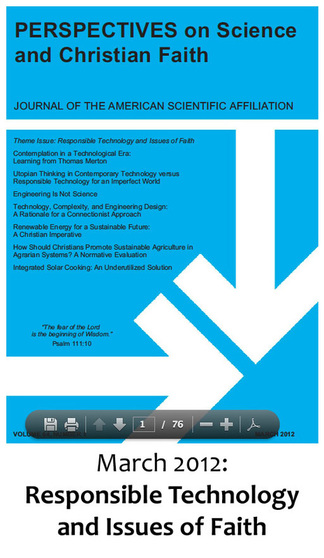Welcoming the Interstellar Church
by Gavin Merrifield Today there exists the distinct possibility that one day soon the world’s press and media will be abuzz about a unique event unparalleled in the history of humanity. That event will not be about some unforeseen tragedy, some new political programme or even one of our biggest celebrities. Instead it will be about the discovery of life on another world. By this I don’t mean the old over-publicised examples of sniffing out complex carbon-based molecules on comets or even announcements about possible fossil microbes in Martian rocks found in the Antarctic. We’ve been there before. Rather, I mean an announcement about an extraterrestrial intelligence (ETI) made with such certainty and credibility that there would be no going back to the way things are today. This may come in any number of ways. One of the rovers on Mars could simply round a rock tomorrow and discover alien artifacts tucked away behind it. Looking beyond the solar system, our increasingly sophisticated monitoring of neighbor stars may soon reveal unique chemical signatures from the many planets discovered orbiting around them — signals that could only come from technological or biological processes. And the possibility still exists that the decades-old effort to observe electromagnetic signals from ETI may finally succeed. We have been pondering the existence of other intelligent beings in the universe for centuries. Today, the concept of them is familiar to us all through numerous science fiction novels, movies and video games. What's different now is that we have deployed advanced technologies and data analysis techniques on a scale not seen before. To put it another way, we haven’t just gone up a few gears, we have swapped the car for a rocket. After those many centuries, we are finally on the edge of gaining an actual answer. From this perspective, there has never been a more exciting time to live in than that of today! The possibility of ETI's existence does leave us confronting the question of what this might mean for Christianity as a whole, and also for individual believers. For some in our churches and wider society, it already means only negative things. The existence of ETI is somehow seen as destructive to the foundations of Christian belief. There is worry that people will lose their moral guidance or purpose in the wake of the ‘superior’ ethics and technology that ETI will apparently lavish upon us. And unfortunately, there are some who have already prejudged any ETI as simply a physical manifestation of Satan and his demons and therefore to be condemned outright. This negative viewpoint is perhaps understandable. In both our churches and wider society, there is a modern undercurrent of suspicion against science, and frequent opposition to scientists, themselves. This encourages people to be naturally wary of what modern science might appear to be imposing upon them. The idea and implications of ETI are also an encounter with the unknown (and possibly unknowable). Certainly, this is unsettling stuff at first glance and can leave some cultures predisposed to viewing ETI with distrust. In opposition to this, however, I suggest that as Christians, we cannot adopt this suspicious and negative attitude, and in fact, we must not allow ourselves to accept it. We cannot control the existence or non-existence of ETI for the sake of our own personal comfort. That period of comfortable ignorance is ending. We need to accept that. So how do we approach the implications of ETI? I suggest we do so humbly and with respect. We must be humble, because there are too many unknowns, and we cannot rely on our own flawed self-arrogance. With respect, because whatever else ETI might be, they will be (by definition) intelligent beings, real persons, sharing the same God as ourselves and existing in the same universe as we do. There may be much that is common between us as civilizations. There will be genuine challenges over how and what to map from Christian theology onto an ETI theology (if one exists), but our interstellar friends will be facing the same challenges as ourselves with regard to their own ideas. Rather than fear this, we should view it is a grand opportunity for theological enrichment revealed in God’s timing and providence. There is nothing in Scripture that speaks out either for or against the existence of ETI. There is, however, much about how we are to treat the stranger, much about how God is Creator and Lord of all. There is also much spoken about His love for all that He has made. Our significance in the Creator’s view will not dwindle just because we humans discover someone else shares the universe with us. God’s everlasting love for and constant interest in His creatures goes far beyond such human limitations! We are recipients of a love that is endless — therefore, there is more than enough to be shared around with others beyond our world. If there are ETI civilizations out there waiting to be discovered, waiting to be contacted or striving to contact us, then we should welcome them as brothers, as fellow beings created and loved by the same universal God. The truth of the matter is that ETI may well exist. That is a question for scientific discovery to solve, but it is also necessary for us in the Church to prepare ourselves for receiving an answer, as currently we are not ready. I say we begin preparations for that great day joyfully, with hope and with praise. --Gavin Merrifield |





